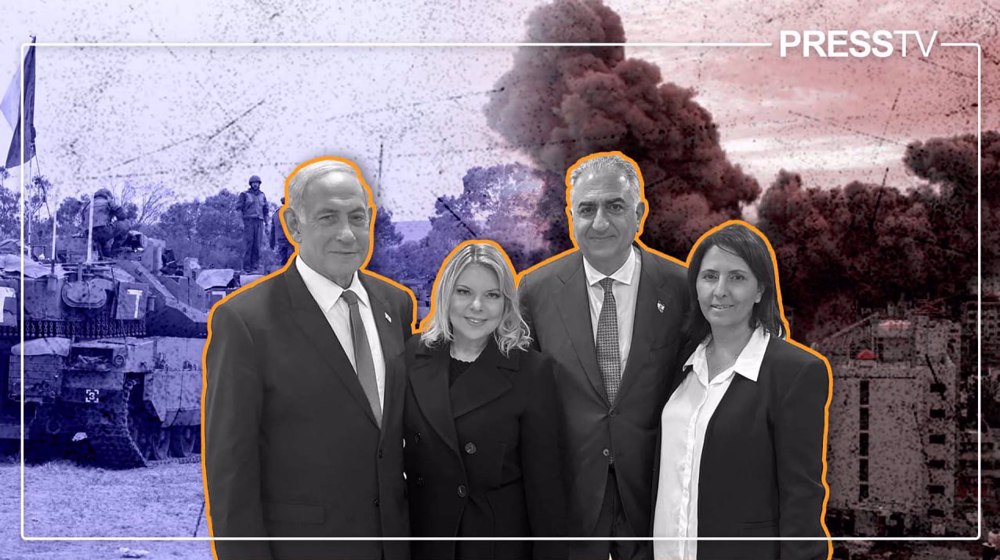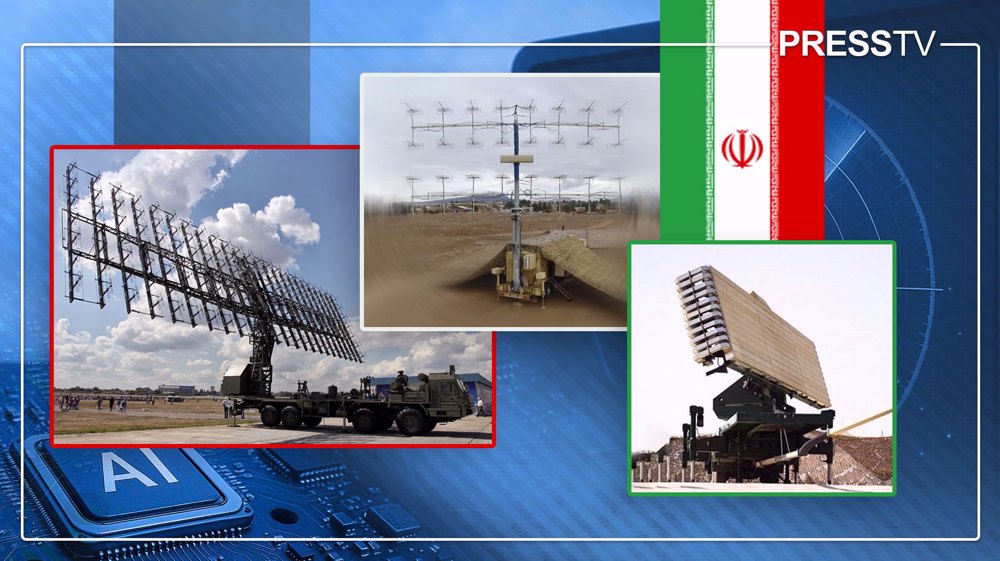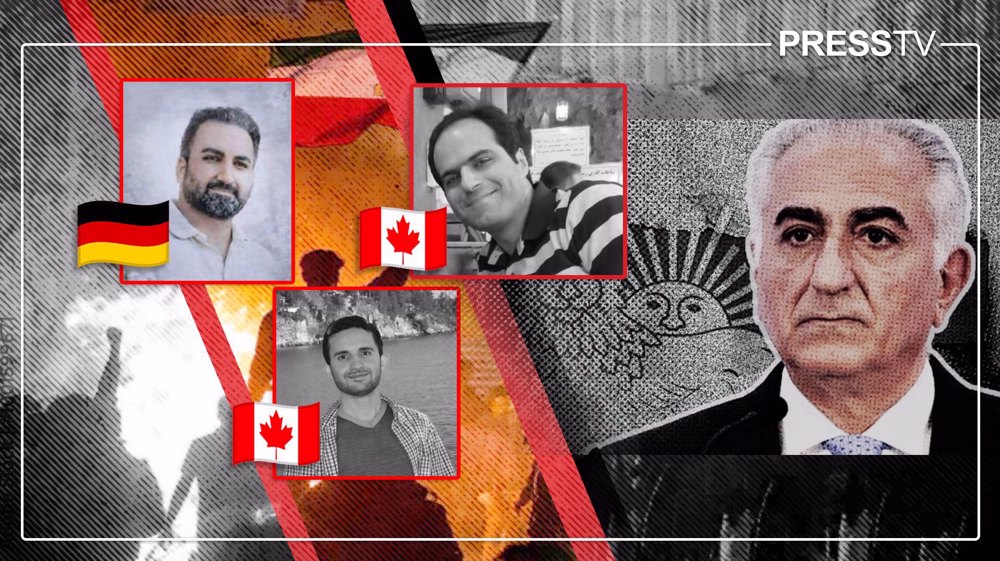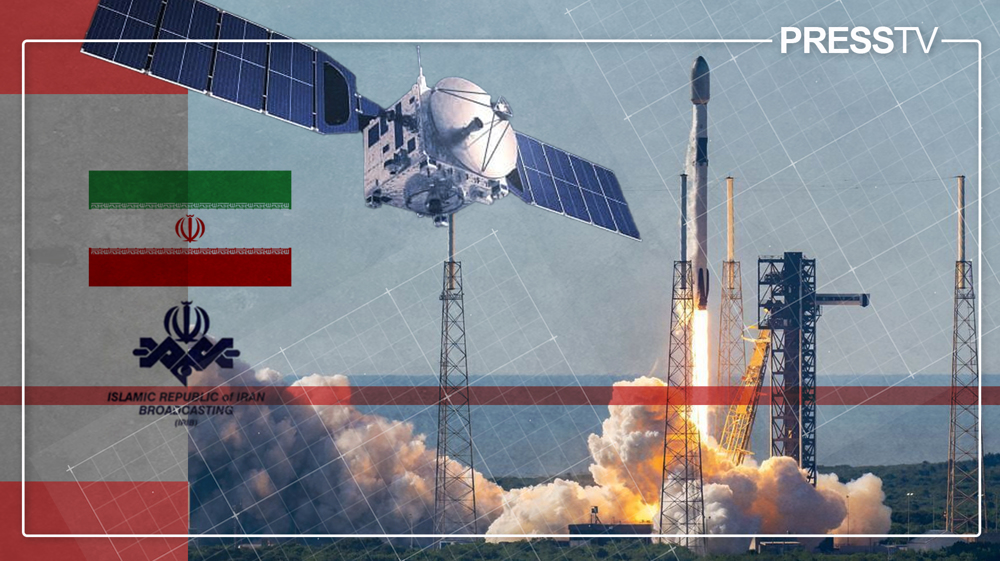Explainer: What makes Pahlavi monarchists and Israeli regime natural allies?
By Press TV Staff Writer
Benjamin Netanyahu's regime in Tel Aviv has found support from not-so-strange quarters for its genocidal war against Palestinians in the Gaza Strip, including Iran’s unpopular former monarchists.
In the past five months, the son of the deposed former Iranian monarchist and his loyalists have been aggressively lobbying for the child-murdering regime and justifying its war crimes.
Reza Pahlavi, the son of Iran’s last Pahlavi dynasty ruler Mohammad Reza Pahlavi, has been unapologetic about his ties with Netanyahu and other Israeli regime officials, even visiting the occupied territories to express his support for the regime’s settler-colonial project.
In statements to British and Israeli media after the events of October 7, the self-proclaimed “crown prince” endorsed the Israeli regime’s genocidal onslaught on Gaza, while vilifying Hamas and Iran.
In November, his wife Yasmine was seen at a pro-Israel rally in Washington, waving the long-discredited Pahlavi and Israeli flags, with Pahlavi bots circulating them on social media pages.
The alliance between Iran’s former monarchists and the Israeli regime, who share common goals, got impetus after Pahlavi and his spouse visited the Israeli-occupied territories in April of last year, hosted by the Israeli premier himself.
It marked the formalization of their long-standing informal evil-evil relationship.
What has Reza Pahlavi done or achieved all his life?
Junior Pahlavi's biography is an odd story of multiple political, military, educational, family, career, financial, and business failures, which are attributed to his lofty but unattainable ambitions.
He was born as the first and oldest son of Mohammed Reza Pahlavi, the former Iranian dictator installed by Americans and British, who was groomed as his father’s heir apparent.
His ambitions, however, were nipped into the bud after Iranians rose against the West-backed Pahlavi dictatorship more than 40 years ago and established an Islamic republic.
Amid the popular uprising in Iran, he fled abroad with his family and settled in the United States, where he enrolled to study at two colleges, but eventually dropped out of both.
Even before the Islamic Revolution in Iran, he tried to complete a one-year course for a military pilot in the US but failed, dropping out four months before graduating.
Years later, in his biography, he falsely claimed that he offered himself to the Iranian Air Force during the Baathist Iraqi aggression, but it was rejected, a concocted story meant to build a heroic image.
After his father's death, as a twenty-year-old, he proclaimed himself the new “king” of Iran, but it wasn’t recognized by anyone, not even his host country, which distanced itself from him.
Many years later, the Israeli intelligence officers revealed that during the Sacred Defense War in the 1980s, Pahlavi was actually trying to organize a coup to become the monarch.
This plan was initiated by his call to Yaakov Nimrudi, an intelligence officer who trained the notorious secret police SAVAK in Iran, and included $800 million worth of military equipment approved by then-Israeli military affairs minister Ariel Sharon.
The coup plan ended in a disaster and Pahlavi retired to a luxurious estate in Virginia, getting married, living grandiosely and splurging money provided to him by Americans and Israelis.
He was not able to manage his finances well and was slapped with lawsuits by former regime collaborators, literally crying in courtrooms and justifying to the courts that he ran out of money.
By his own admission, the 63-year-old son of the last Iranian monarch never had a job in his life and lived only on inheritance and donations from monarchy loyalists living in the West.
The loss of royal status was too difficult for two of his siblings, who struggled with depression and drug addiction and eventually committed suicide in an act of desperation.
On the personal front also, his ambitions didn’t materialize. Pahlavi's great personal desire to have a son and a potential royal heir was never fulfilled. All three of his children are daughters.
What do Pahlavi monarchists want and why it’s unattainable?
For years, he claimed to be apolitical and not interested in the restoration of the monarchy in Iran, which he realized was a far-fetched dream. But his American and Zionist friends kept prodding him.
Every time there were protests in Iran, he would jump at the opportunity to call for the ouster of the democratically-elected leadership of the Islamic Republic, positioning himself as the "opposition".
In the 2010s, there was a trend of growing American, British and Israeli support for these groups against the Islamic Republic, from Marxists to separatists to monarchists, including Pahlavi.
Akin to other anti-Iran groups, branded "opposition" by the Western media, Pahlavi claimed to lead a pluralistic "national council," in reality a one-man show with a handful of like-minded persons.
Propaganda TV channels in Persian ambitiously promoted him as one of the "opposition leaders," especially the UK-based pro-monarchy Manoto, which was shut down at the beginning of this year.
Their activities were mainly focused on the aggressive promotion of monarchy rule as a social utopia, as well as the lifestyle of the dictatorial family and the minority elite, targeting young Iranians.
The rest included distortion of historical facts, conspiracy theories about the causes of the revolution, belittling of Iranian success stories, emphasis on marginal social problems, etc.
Pahlavi often gave interviews and comments to these TV channels, in line with the political agenda of Washington, London and Tel Aviv, always denying the legitimacy of the Islamic Republic.
After Donald Trump took office in Washington, he recognized his new opportunity in the administration composed of neocons and extreme Zionists, supporting US withdrawal from the 2015 nuclear deal and repeating Trump’s rhetoric about Iran’s nuclear program.
He vigorously promoted Trump's policy of maximum pressure against Iran, claiming that brutal sanctions are "what Iranians want," showing how much he truly cared about the Iranian people.
His activities at the time show he had great confidence in Trump's policy of overthrowing the Iranian democracy and tried to position himself as the first choice for their vision of a "new Iran."
He was often seen in the company of Sheldon Adelson, a US Republican mega-donor and hardline Zionist, who once advocated the detonation of a nuclear bomb on Iranian territory.
He was also often invited to meetings of the Washington Institute for Near East Policy (WINEP), a branch of the American Israel Public Affairs Committee (AIPAC), an influential Zionist lobby group.
After the Trump administration’s policy and plans for Iran proved a failure, Pahlavi also became hopeless and turned to the Zionist regime directly for moral and financial sponsorship.
What makes Pahlavis and the Israeli regime an alliance?
In April 2023, Pahlavi and his wife went on a five-day trip to the Israeli-occupied territories, where they were warmly received and hosted by Netanyahu and his intelligence minister Gila Gamliel.
In Tel Aviv, he presented an identical vision of Iran's future with Netanyahu, as both hallucinated about the fall of the Islamic Republic and the restoration of monarchical rule.
With Gamliel, Pahlavi and his wife visited several sites in the occupied territories, attended a ceremony at Yad Vashem and held a Jewish prayer at the Western Wall, while avoiding the Al-Aqsa Mosque in the occupied al-Quds and any mention of Palestinians and their occupation.
His wife published a photo with Israeli female soldiers in occupied East Jerusalem with a slogan that was used a year earlier during violent riots in Iran, bankrolled by Western countries and Israel.
Pahlavi was accompanied during the visit by Amir-Hossein Etemadi, Saeed Ghasseminejad and Mark Dubowitz, members of the Foundation for Defense of Democracies (FDD), a prominent US-based Zionist lobby group.
All three are known for their extreme Zionist, anti-Palestinian and anti-Iranian views, advocacy of sanctions and even US-Israeli military aggression against Iran.
Pahlavi also met with Hananya Naftali, a Likudnik propagandist on social networks and a close aide of Netanyahu, who since 2020 had maintained active profiles on the platform X (formerly Twitter) and Facebook in Persian, although does not know the language.
The visit was described as "historic" by the Israeli media and Pahlavi himself, even though it was merely a publicity stunt for both sides and didn’t represent anything new in their ties.
The relationship between the Pahlavi family and Zionists goes back to the 1960s, when SAVAK was founded with their help and when lucrative oil deals were concluded, away from the public eye.
His personal ties to Zionists go back to the 1980s when he asked Israel's intelligence elite to help organize a pro-monarchy coup in Iran. The ties only progressed over the years.
A pro-monarchist mass uprising has long been dismissed as unthinkable by all Iranian and foreign political analysts, who agree that Pahlavi and other anti-Iran elements propped up by the Western governments and the Israeli regime are chasing a mirage.
VIDEO | US support for Israel’s expansionist agenda
Palestinians granted only 66 building permits in West Bank over 11 years: Report
Somaliland ready to give US access to its minerals, military bases: Minister
VIDEO | Iran's game changing retaliation boxes- part 1
VIDEO | Iran's game changing retaliation boxes- Part 2
VIDEO | Palestinian widow raises three kids in Gaza as her husband killed by Israel
Palestinian teen killed as raids and settler violence intensify across West Bank
Iran’s layered arsenal primed to deter – and decimate – US warships in Persian Gulf










 This makes it easy to access the Press TV website
This makes it easy to access the Press TV website